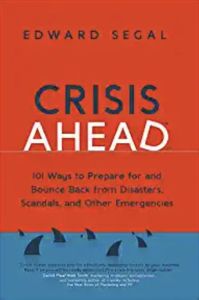Join getAbstract to access the summary!

Join getAbstract to access the summary!
Edward Segal
Crisis Ahead
101 Ways to Prepare for and Bounce Back from Disasters, Scandals and Other Emergencies
Nicholas Brealey Publishing, 2020
What's inside?
Lack of crisis planning can be disastrous.
Recommendation
The scariest thing about a crisis is that it’s probably only a matter of time before you’ll be in the middle of one. If you’re not ready, writes Edward Segal, then it’s too late. Fortunately, he offers a sound game plan for dealing with disasters and preventing problems from becoming unmanageable. His stories illustrate how well or poorly individuals and companies have handled challenging situations. Preparation is the bottom line. Pretending you are immune to a crisis or failing to have a crisis management plan can be catastrophic. Leaders need this book, especially if they believe as Segal does that the next crisis isn’t a matter of if, but when.
Summary
About the Author
Crisis management and public relations expert Edward Segal helps organizations get through disasters and emergencies. A contributor to Forbes, he has provided PR for more than 500 organizations and is a former columnist for The Wall Street Journal’s StartUpJournal.com.

















Comment on this summary